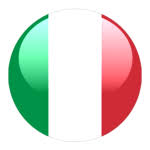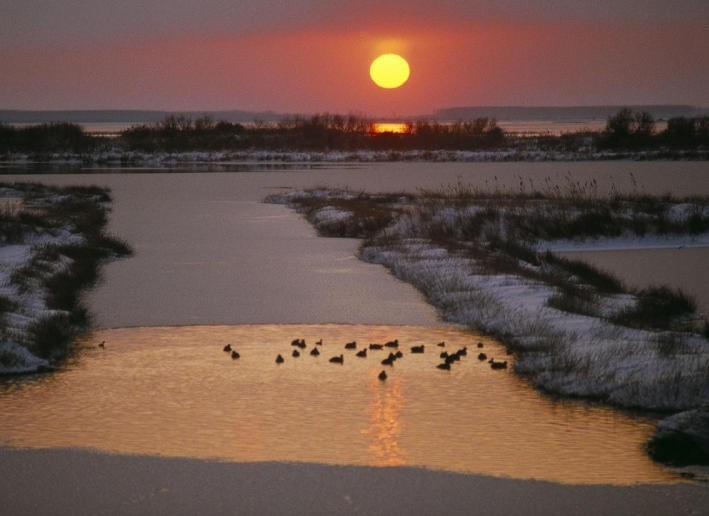 The year 2020 was intended to be a “biodiversity super year”. Many far-reaching decisions concerning the preservation of biodiversity were meant to be taken in 2020. But due to the COVID-19 pandemic, a number of international meetings could not take place and have been postponed.
The year 2020 was intended to be a “biodiversity super year”. Many far-reaching decisions concerning the preservation of biodiversity were meant to be taken in 2020. But due to the COVID-19 pandemic, a number of international meetings could not take place and have been postponed.
Meanwhile, the pandemic is not an isolated phenomenon. Scientific evidence links the emergence of the COVID-19 virus to the breakdown of ecosystems and biodiversity loss. Humankind has been destroying the natural environment at an accelerating rate, putting human populations in contact with new pathogens we are not equipped to control.
The year 2020 has also continued to show the interconnection of climate change and biodiversity. Rampant fires, probably caused by climate change impacts, have threatened natural World Heritage sites in many parts of the world, such as Brazil’s Pantanal region and Australia’s Blue Mountains and Gondwana Rainforests. Again we saw coral mass bleaching events and glacier melting. Extreme weather events have also hit the Rwenzori Mountains in Uganda, Socotra in Yemen and the Sundarbans in India, in addition to causing flooding at many cultural properties.
Tragically, instead of the biodiversity super year, 2020 has become the year that nature gives us a clear warning: if we do not reverse biodiversity loss and ecosystem degradation, and address the causes of climate change, the world could see unprecedented changes irreversibly affecting our planet, our way of life and many of our irreplaceable World Heritage properties.
We can only hope what we have learned in 2020 will convince world leaders, and each one of us, to take the decisions needed for transformative change to save our planet, in 2021 and beyond. By working together we can address these challenges, mitigate losses and make effective change in helping our natural world to thrive.
I wish you all the best for a happy and healthy 2021!
Mechtild Rössler
Director
UNESCO World Heritage Centre
 L’anno 2020 doveva essere un “super anno della biodiversità”. Molte decisioni di vasta portata riguardanti la conservazione della biodiversità avrebbero dovuto essere prese nel 2020. Ma a causa della pandemia COVID-19, non è stato possibile tenere una serie di incontri internazionali che sono stati rinviati.
L’anno 2020 doveva essere un “super anno della biodiversità”. Molte decisioni di vasta portata riguardanti la conservazione della biodiversità avrebbero dovuto essere prese nel 2020. Ma a causa della pandemia COVID-19, non è stato possibile tenere una serie di incontri internazionali che sono stati rinviati.
Nel frattempo, la pandemia non è un fenomeno isolato. Le prove scientifiche collegano l’emergere del virus COVID-19 alla rottura degli ecosistemi e alla perdita di biodiversità. L’umanità sta distruggendo l’ambiente naturale a un ritmo accelerato, mettendo le popolazioni umane in contatto con nuovi agenti patogeni che non siamo attrezzati per controllare.
L’anno 2020 ha anche continuato a mostrare l’interconnessione tra cambiamento climatico e biodiversità. Gli incendi dilaganti, probabilmente causati dagli impatti dei cambiamenti climatici, hanno minacciato i siti naturali del patrimonio mondiale in molte parti del mondo, come la regione brasiliana del Pantanal e le montagne blu australiane e le foreste pluviali del Gondwana. Ancora, abbiamo visto eventi di sbiancamento della massa corallina e scioglimento dei ghiacciai. Eventi meteorologici estremi hanno colpito anche le montagne del Rwenzori in Uganda, Socotra nello Yemen e il Sundarbans in India, oltre a causare inondazioni in molte proprietà culturali.
Tragicamente, invece del super anno della biodiversità, il 2020 è diventato l’anno in cui la natura ci dà un chiaro avvertimento: se non invertiamo la perdita di biodiversità e il degrado dell’ecosistema e affrontiamo le cause del cambiamento climatico, il mondo potrebbe vedere cambiamenti senza precedenti che influenzano irreversibilmente il nostro pianeta, il nostro modo di vivere e molte delle nostre insostituibili proprietà del Patrimonio Mondiale. Possiamo solo sperare che ciò che abbiamo imparato nel 2020 convincerà i leader mondiali, e ciascuno di noi, a prendere le decisioni necessarie per un cambiamento trasformativo per salvare il nostro pianeta, nel 2021 e oltre.
Lavorando insieme possiamo affrontare queste sfide, mitigare le perdite e apportare cambiamenti efficaci per aiutare il nostro mondo naturale a prosperare.
Vi auguro tutto il meglio per un felice e sano 2021!
Mechtild Rössler
Direttore
UNESCO World Heritage Centre

